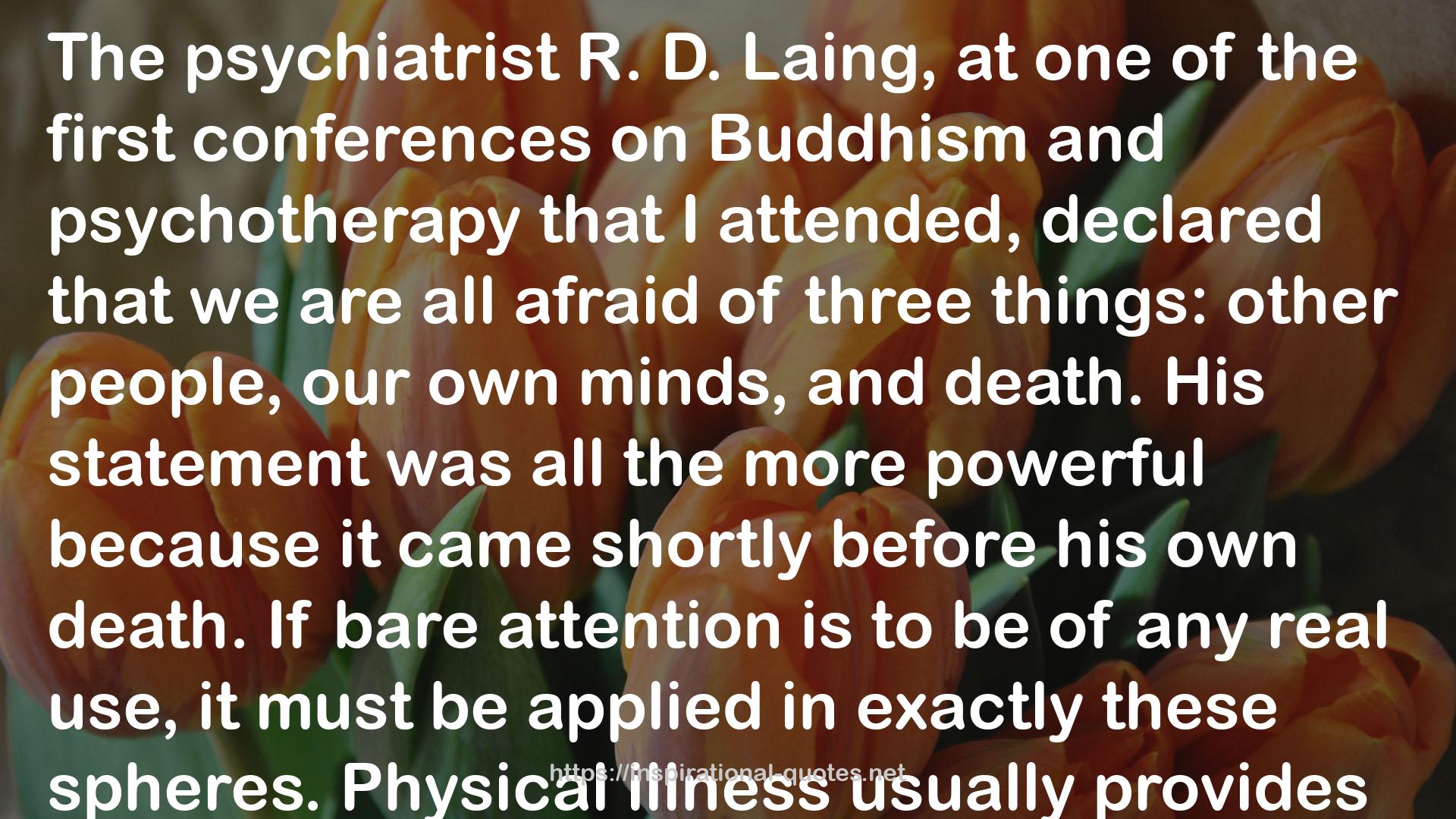" The psychiatrist R. D. Laing, at one of the first conferences on Buddhism and psychotherapy that I attended, declared that we are all afraid of three things: other people, our own minds, and death. His statement was all the more powerful because it came shortly before his own death. If bare attention is to be of any real use, it must be applied in exactly these spheres. Physical illness usually provides us with such an opportunity. When my father-in-law, an observant Jew with little overt interest in Eastern philosophy, was facing radical surgery not so long ago, he sought my counsel because he knew of some work I was engaged in about stress reduction. He wanted to know how he could manage his thoughts while going into the surgery, and what he could do while lying awake at night? I taught him bare attention to a simple Jewish prayer; he was gradually able to expand the mental state that developed around the prayer to encompass his thoughts, anxieties, and fears. Even in the intensive care unit after surgery, when he could not tell day from night, move, swallow, or talk, he was able to use bare attention to rest in the moment, dissolving his fears in the meditative space of his own mind. Several years later, after attending Yom Kippur services, he showed me a particular passage in the prayer book that reminded him of what he had learned through his ordeal. A more Buddhist verse he could not have uncovered: A man’s origin is from dust and his destiny is back to dust, at risk of his life he earns his bread; he is likened to a broken shard, withering grass, a fading flower, a passing shade, a dissipating cloud, a blowing wind, flying dust, and a fleeting dream. The fearlessness of bare attention is necessary in the psychological venue as well, where the practice of psychotherapy has revealed just how ingenious and intransigent the ego’s defenses can be. Even when they are in therapy, people are afraid of discovering things about themselves that they do not wish to know. "
― Mark Epstein , Thoughts Without A Thinker: Psychotherapy From A Buddhist Perspective
